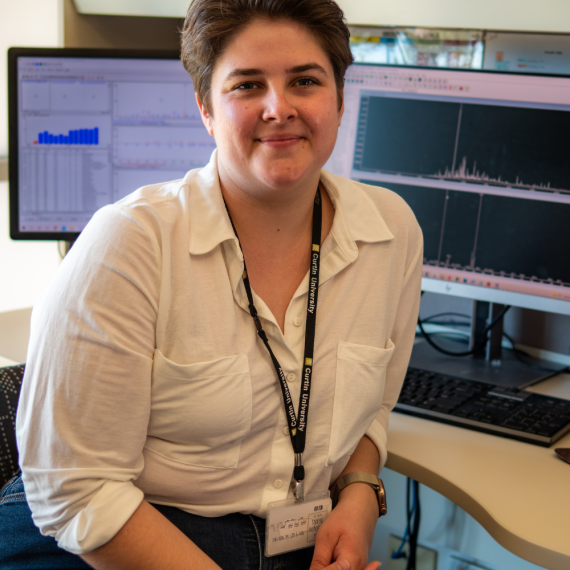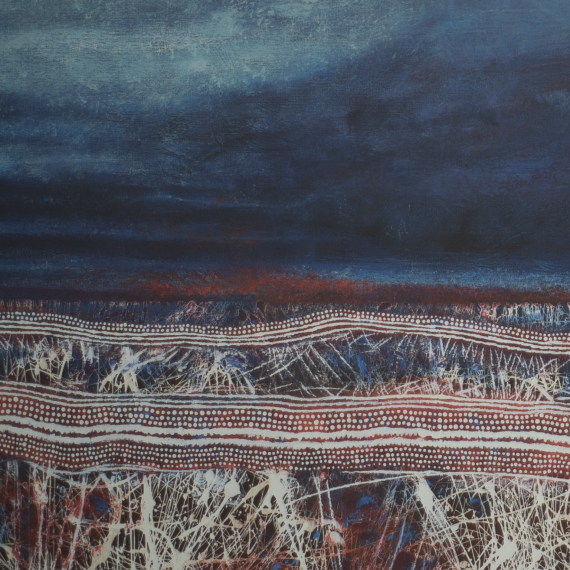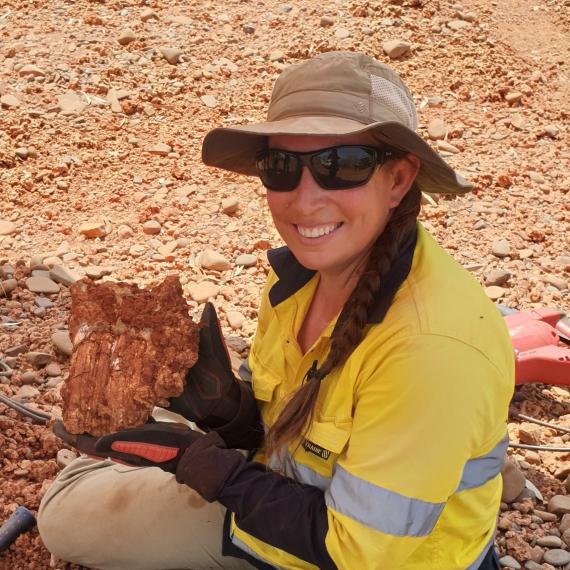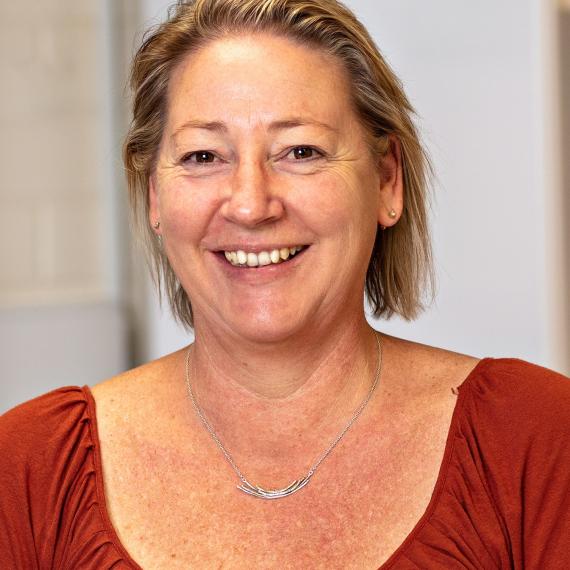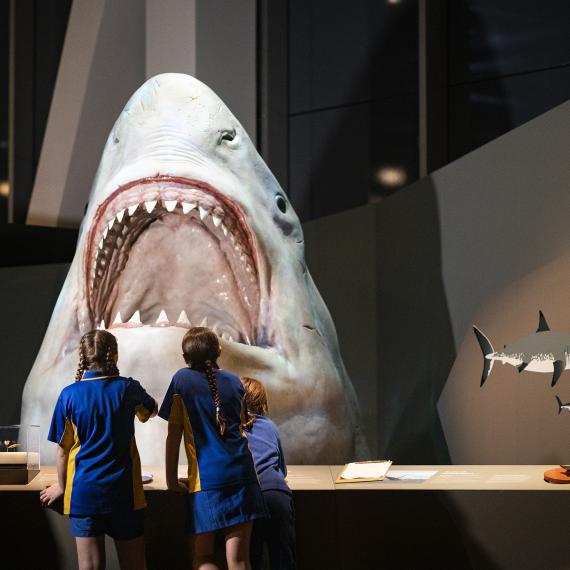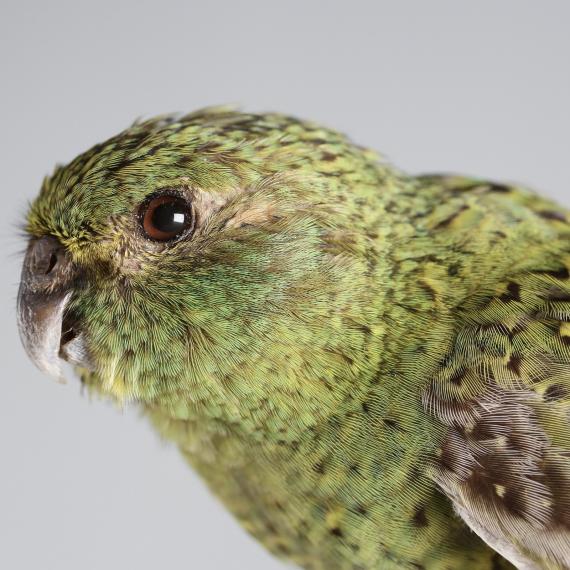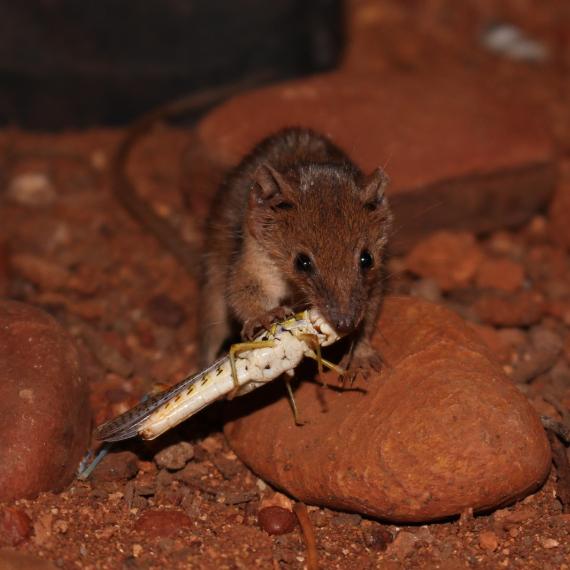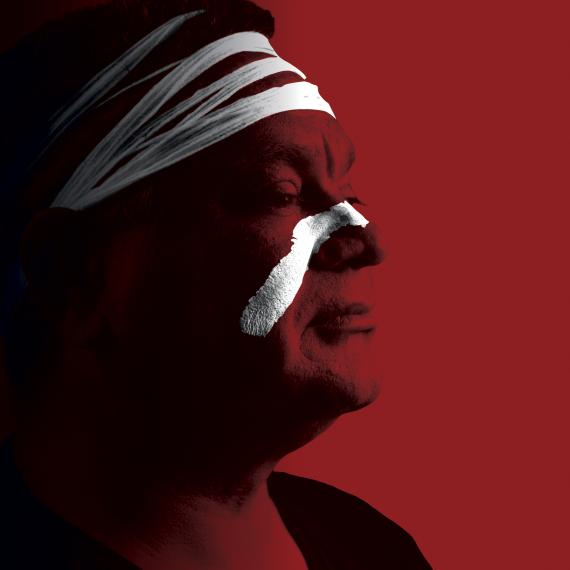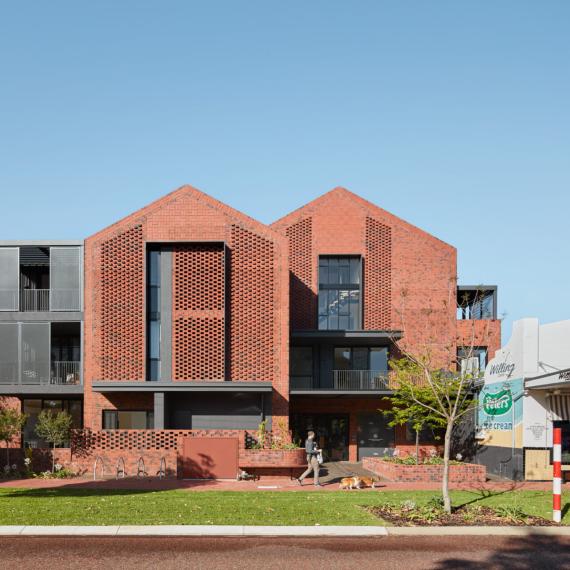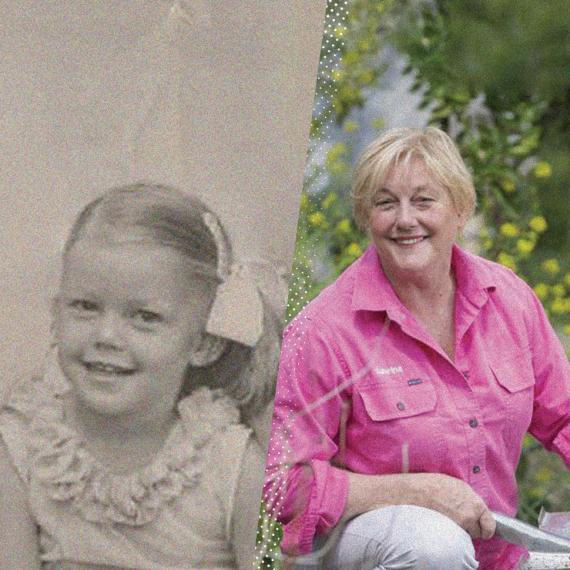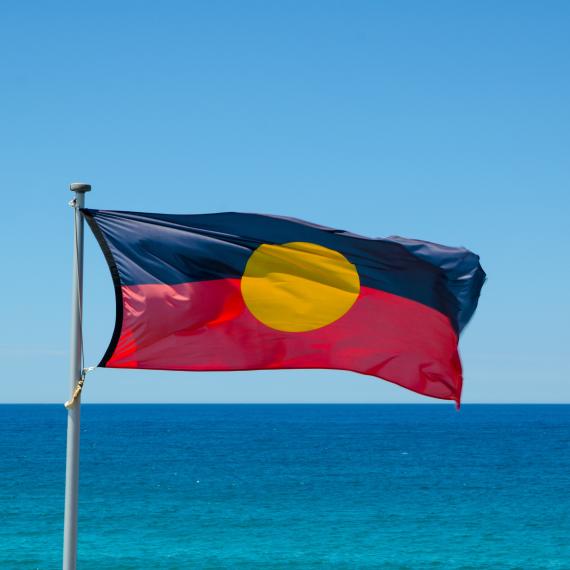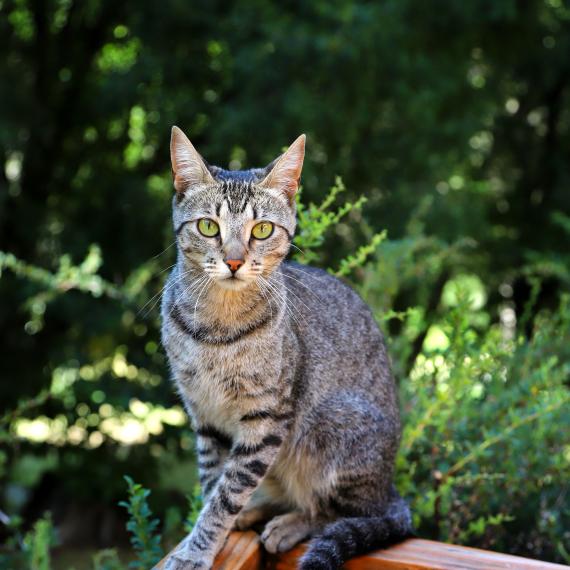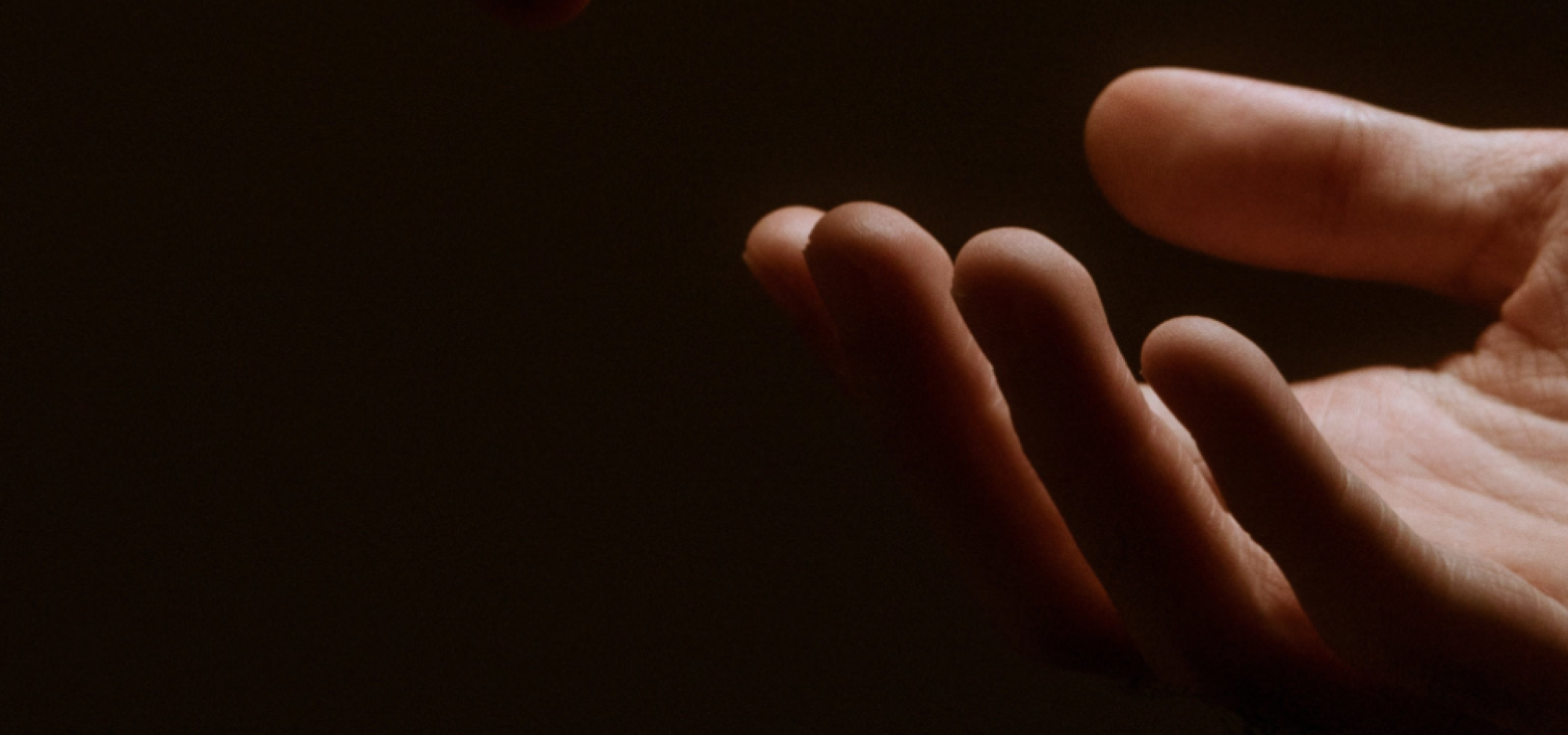
In Conversation: Family and Domestic Violence - Phases/Faces
Some stories from our region are darker and more complicated than others.
Gender-related violence isn’t talked about often enough, but it happens in WA.
Often, conversations centre on victims and perpetrators, warning signs and cycles, breaking points and crises. But what happens next? How do we move toward recovery, reconciliation, and positive change?
In this session of In Conversation, we will shift the narrative to focus on stories of resilience and hope. We'll hear from survivors who have shared their experiences and from organisations dedicated to holistic, long-term support that honours the humanity of those involved.
Join us as we explore this complex issue and explore paths to empowerment and meaningful change.
Scroll down to meet our facilitator and speakers.
This event and podcast was part of 16 Days in WA
The annual 16 Days in WA campaign runs from November 25, the International Day for the Elimination of Violence Against Women, to December 10, Human Rights Day. In its eighth year, it aims to change attitudes and behaviours contributing to violence against women and children.
About In Conversation
A safe space for challenging discussions, In Conversation features thought-provoking dialogues on pressing issues with diverse perspectives. The Museum collaborates with various partners to explore complex concepts led by some of WA’s brightest minds.
-
Episode transcript
[Talks archive intro music]
Welcome to In Conversation, a series brought to you by the Western Australian Museum Boola Bardip. In Conversation is a safe house for difficult conversations, and passionate and thought-provoking public dialogues that tackle big issues and difficult questions. Led by some of WA’s most brilliant minds, In Conversation is recorded on Whadjuk Noongar Boodja, the Western Australian Museum acknowledges and respects the traditional owners of the ancestral lands, waters and skies.
MC: Good evening, everybody, welcome to the WA Museum Boola Bardip and our In Conversation for this evening. Before we get started, I’d just like to take a moment to acknowledge the lands on which we are gathered and discussing here tonight, the lands of the Whadjuk people of the Noongar Nation, may we pay our respects to elders past and present and extend those respects to any First Nations folks joining us.
I would like to thank you all for joining us this evening to get the conversation going about gender related violence. We are honoured to have some very well-respected thought leaders, and these people bring with them many years of experience within the field.
So, here to introduce the speakers and facilitate the conversation tonight is Donna Chung, professor of Social Work and Social Policy at Curtin University. In addition to holding teaching, research and management roles at various universities, Donna has also been heavily involved in evaluating programs and providing policy advice to government. She currently sits as the chair of the Centre of Women's Safety and Well-Being.
Please make everyone feel welcome.
[Audience Applause]
Donna Chung: Thanks Alisha for your introduction. So, I'm Donna Chung as said, so what I might do is just introduce the rest of the panel and ask people to just give us a short bit of background about themselves before we move on to the questions.
Georgia Prideaux-Cera: My name is Georgia, and I started as a young child born into a severe domestic violence situation.
I was born three months premature. My mum walked to the hospital to have me with her two, my two sisters. My dad was severely violent and in those days in Kalgoorlie in the 70s, very hard with the way we policed domestic violence, we had to leave there. So, there was ten years there.
Then with my stepfather when we left, he was not so much violent towards my mother, but he was cruel and violent towards children. And we, he then acquired a brain injury which made him more dangerous, and at 16 I decided I should leave home. So, I had I had a childhood basically of domestic violence in one form or the other.
I left home; I met a young Indigenous boy. He was older than me, five years older than me, I was 16 and a half. He too had lived through domestic violence, and we discussed this, and we decided we would never live like that. I was working at the Perth Fire Brigade, and after a while he started becoming jealous, insecure, controlling. I couldn't wear make-up. Things were starting to happen.
First time he hit me; it was a shock. I ran and locked myself in a bathroom, I thought he would never hit me. And I was leaving. That was it. And he decided, you're not leaving. He then cut the phone cord, locked the doors. He held me captive for three months. The police finally got me out. Ten police officers, one received a broken collarbone, I managed to escape to a lady across the road. I tried a few times to escape and was assaulted. And he actually… I left with a broken cheekbone, a tailbone and a broken wrist, and I left pregnant with my daughter, who is here this evening and giving me this opportunity.
So, I was a young, single mother, I had a year of that. Being Indigenous, he had help with access and bits and pieces, and we navigated that through his mother.
A year after I escaped and my daughter was one, he broke into my home with a sawn off, double barrel shotgun. He had got 50 rounds of ammunition. He had plastic bags. He had dug a grave in a state forest to bury me. I was abducted and taken there. My daughter was thrown into the cupboard. Basically, I survived. I was sexually assaulted, and I managed to survive that night and escape that situation. He was sentenced to six and a half years. In that time, we had the third and the third of the third sentencing in those days. He joined a bikie gang in jail, and he met a new partner. So, in those days he got out within two years on good behaviour.
When he got out after joining the bikie gang, my car was tampered with, and it exploded. I lost my breast and bicep through burns. I had 35% of myself burnt, including my face and arms, that was second degree. I've had this replaced with my own thing [gestures]. So, we couldn't prove the burns, but he had a tattoo of my name on his wrist, so he basically put a bomb over where my name was and that was my indication.
After that, I just met my husband that's here today. I was only young, still in my 20s, 25. My husband was away at work. He had assaulted his own partner, left and then he decided to come back on me. So, he broke into the home with a samurai sword. I was beaten almost to death 50 times, and I was raped. And I managed to survive that.
So, I had gone through most of my life continuing to work, pretending these things weren't happening, coping, having restraining orders breached. He once breached a restraining order in a gorilla suit with a knife in a bag to try to finish me off with the old gorilla-gram. So, I had some really weird moments, but I went on to put my name and face to violence, and I become the first woman in Australia to read out a victim impact statement. I set precedent in the courts.
I actually was the first woman in Australia to get a lifelong restraining order. I used to write to politicians and all sorts of people when I was in the mid-90s to tell them that you're not passing on victim impact statements, you're not doing this.
We got ex-gratia payments for victims. And I went on to go back to school because I realized I need to catch up. Yeah, I didn't want to just be a token victim running around. So, I went back to school and studied a Bachelor in Psychology and then again in Criminology, and I became the first woman to have a vote on the release of offenders.
So, I've been on the parole board for 20 years. I've been in both victims' representation, community member and deputy chair to finish off and I've only just come off that… and I've been happily volunteering over at ‘Starting Over Support’ for quite a few years now and I really appreciate the grassroots.
So, I'm right now looking for a job, but I'm really enjoying my volunteering and yes, that's it.
Donna Chung: Thanks, Georgia [Audience applause]. And thanks for your generosity in being able to share the information as well as all your advocacy.
And you know the people that have come after you that have benefited from your advocacy. So, thank you for that, really appreciate that [Audience applause]. I think we all really appreciate that. Thank you.
Ben, can I just get you to introduce yourself?
Ben Headlam: Yeah. Hi, everybody. I'm Ben, ahh Alicia's introduction…
Alicia’s introduction is rather generous when it comes to me. I've been in this sector for a grand total of five months. I have a background in mental health nursing, from mental health services and drug and alcohol services for 15 years and a 25-year clinical career. But I think that's pretty indicative of this issue, right? The male talking about solutions is new to the sector. We have I see [refers to audience] hats off to the two men in the… three men in the audience and I think that's why I'm here. And for me, that message of me having been in this sector for five months and standing in front of you to talk about this issue as if I actually know something about it that you don't is really, really indicative of where this conversation actually needs to go, and how we're actually going to see meaningful change. That’s it for me. [Audience applause].
Donna Chung: Anna, can I ask you to introduce yourself?
Anna Farrant: Of course. Hi everyone, my name is Anna Farrant and I'm here I'm the manager of Family Domestic Violence at the Centre for Women's Safety and Wellbeing. So that's the peak body for all family domestic violence, sexual violence and women's health services across WA. So, we're the independent peak representative and advocacy body for this the sector, all the amazing professionals and volunteers who work supporting women and children escaping and healing from family domestic violence, sexual violence.
My background is I'm a lawyer, I'm freshly out of the law, so I've been in my role for about six months. But I've come to it with ten years’ experience working predominantly for women and children experiencing or escaping family domestic violence across the family law system. Predominately child protection system actually, restraining order matters, victims of crime, compensation matters, crime, youth and adult so…and mental health tribunals, so a bit of a spectrum of experience there. But yeah, it's brought me to this role which is predominantly advocating for increased support and acknowledgment of the professionals and the incredible expertise that supports women and children escaping violence [Audience applause].
Donna Chung: Thanks Anna. So, as you can see, we've got a range of folks here tonight with a really wide range of important experiences. My background is… I actually started looking at domestic violence in 1986 when I was a final year social work student.
So, similar to Georgia, we go back a long way in this field. And I think one of the things that I often think about is when people say ‘Oh, you know enough is enough and this is outrageous’ and I kind of think, you know when we first started to even claim that this existed, people didn't want to know. People minimized it. People said we were looking for trouble. Looking for a problem. And so, I've always been conscious that when people go, ‘Enough is enough’, It's like yeah, but you have to understand that years back, people didn't even believe it happened. So, in that sense, we've come a long way. So, we've gone from it doesn't happen, to it's a national epidemic. So, for me it can sound a bit negative, but I think that is real progress in terms of being able to see that change.
And also, I guess the fact that the word DV is often understood now in the community is a huge shift compared to when we, when I first worked in Domestic Violence. There used to be this chocolate milk in in Adelaide that I always remember that it was called DV, and I was used to think, don't buy that type of milk [Audience laughter].
So, you know, I think there's still so much to be done, but we've also come a really long way, and I think that's where we want to really take up the conversation this evening. So I just wanted to make a couple of comments before we get going, so I guess one of the things is that we want to… whilst tonight we're going to be mostly talking about really domestic violence against women and children in heterosexual relationships, we do recognize that it occurs in all ranges of intimate relationships and that often what happens is, particularly for folks who may not be out, or where there might be big power differences, there's still a really similar intent around control. But how that control is enacted and how that coercion is enacted can look really different.
The other two things I just really wanted to mention was that domestic violence and violence against women occurs across all strata of the community, which people know, but I guess one of the things to always from my point of view remember is that it doesn't occur in equal amounts across the community. So, there are particular groups who are confronted with really high levels of violence and abuse. So, for example, First Nations women are known to experience violence and abuse at a much higher rate and homicide at a much higher rate than other folks. Particularly refugee and recently arrived migrant women who may not have residency and citizenship status, women with disability are known to are known to experience violence and abuse, both from partners, from family members, but also from service providers and if they're living in residences. So, the I guess you know the potential range of abusers is, in those contexts, is really wide as well unfortunately.
And I guess finally, we do know that it happens, it's reported more often in groups that experience poverty and other forms of marginalization. And what we're not sure about is how much of that is because there's much more surveillance. So, there's much more surveillance by police, there’s much more involvement by child protection. If you live in a small area that's really built up, people will call the police. Whereas if I live in a big mansion or if you live on a farm, then nobody can hear you call out, nobody knows what's going on behind those closed doors. So, I think that they're the kind of things that we often think about.
And I guess the other thing that I used to say a long time ago is that if I got asked this question, if I got paid a dollar every time I'd ask this question, I would have retired about 20 years ago, which is the issue about women using violence as perpetrators. So, I guess what I would always often think about that is that what we know is that in lesbian relationships or lesbian-trans relationships, in the trans relationships, there is kind of similar levels of violence and abuse, but often that coercion takes different forms. Because of the nature of the relationship in terms of how society views it.
In terms of heterosexual relationships, we do know that there are women who can be abusive and controlling, but from all the evidence we have it happens far less frequently in terms of what people report in surveys as well as to authorities. But also, one of the things we know that's different is that men don't tend to be killed by their female partners, and they don't tend to experience that fear and constant worry about their safety in the way that I think that Georgia really explicitly kind of demonstrated to us.
So, I think there's some of the things just to set the scene that are important. And I guess one of the things that I really wanted to do in trying to make things move, like take the conversation forward tonight, is to ask kind of each of the panel members, what do they think is important when we look at how are we going to keep changing things.
So, we've got awareness and now we've got awareness, how do we reduce and change the current situation? So, can I start by coming back to you Georgia? Can you tell us from your knowledge and experience which is vast and over a range of a range of areas, what do you think is of real, crucial importance in trying to keep women and children safe in Western Australia in the contemporary and current day?
Georgia Prideaux-Cera: I believe we're starting a lot with the education programs about coercive control. So, we're starting with the young kids learning these behaviours are not normal. And I believe that women too are recognizing a lot of things they’ve dismissed as not good. And we know you're at risk when you try to leave in that first instance, that your very highest risk factor to trying to leave an abusive situation. But men are hearing these messages too, but it needs to be from other young men they're working around and pulling them up on on… you know, they might make an off the cuff comment or derogative and someone challenging them on those things. I think basically that we get it starting, but we're going to need the resources once we get going to really once we open the can of worms, because a lot of people are going to need to have plans in place.
But for me, I like the mapping. If you've got somebody, young man that says yes, if you've ever hit a woman and whatever or you've been violent, ‘Oh well, I was drunk and I'm not normally like that’, well every time you take a drink, you're priming yourself for that may potentially happen again. So, I like us to be challenging people on okay, you've done this, what is your cycle? And I've met some people with some really unusual cycles. We have one guy that he gets violent because he wants…starts hanging out for drugs and wants to party with his mate, so he'll be violent before he goes out to get the excuse to go out. So that's his map, that's his behaviour and that builds to that, so I want more self-awareness once they realize this is not acceptable. I want them to us to challenge people and really start to get to the root cause of their behaviours.
Donna Chung: And in terms of like for women who have experienced violence and abuse or maybe experiencing in violence and abuse now, like, what are the things that we think we need in place to, to try and keep women and children safe if they want to move on, or even if they want to maybe remain in the home. What are the kind of things that, in your experience, think it could be helpful?
Georgia Prideaux-Cera: I had a non-government group for 16 years and I have worked on safety plans, so part of our release considerations is safety plans. I think you need a plan. I believe you need to, you have to be very cautious, if you can get some money or do stuff, you have to do that very subversive. We used to do it very quietly. And then if people needed to escape, we used to get them out. I think there's a lot of a victim will know their offender better than anyone else, it’s like you cannot rely just on the police and say, ‘Right, I'm going, I need help, I need to stop here’. I had a total safety plan in place, and I know where we volunteer, we pack suitcases, and we have things where when they need to up and leave… they need to up and leave. So, I had to live like that for for you know a good eight years of my life to avoid being killed. So, they really need to and when services are meeting with them, it's not just that one off ‘We’ve provided you with this’, it's it’s keeping it, but not having to explain their story to every single one they go to. It's really getting to think about a safety plan.
Donna Chung: Yeah. And staying the course with people…not seeing it as a simple event…
Georgia Prideaux-Cera: Put those boundaries up and breach them. If you put in a violence restraining order, one phone call, ‘Oh it was just over this…’, no breach, bang, you’re gone. Because these guys, they are pushing the boundary all the time. And you if you have to move and you, the more you reaffirm that boundary, the more they realize. And that's what I learned because I was a bit soft, scared, trying to navigate knowing the police couldn't arrest them in those days. We didn't even have mobile phones, for a breach of restraining order in the 80s, they used to have to catch them in your suburb. If they got over the line to the next suburb, they were off scott free. So, it was just amazing.
Donna Chung: Yeah. And I think that is kind of that reflection of how many, how much things have changed. But even now, restraining orders work well for some folks, but not so well for others depending on his dangerousness and his risk.
Georgia Prideaux-Cera And these reasons are definitely and ended with the necessary for police to act, they are very necessary. But in the same token, you need your plan. You need to listen to your… we do a lot of protective behaviours looking for early warning signals, knowing patterns of behaviour and get that uneasy feeling, I'm out of there. You know, I'm not hanging around for it. Yeah, and that's just how it is when you're living in that mode.
Donna Chung: Thank you. And I think, like you really spoke to that in terms of giving people a real sense of what that's like and the importance of having a plan in place, even if you don't know when you're going to enact it…
Georgia Prideaux-Cera: I think my thing was I had young kids, and I had to live positively. I've never lived this victim in my home. I had didn't put fear into my children because you have to live every day. You can't let these people rob you every day of happiness. And that also plays on your own mental health. So, I had would put my music on, I would have a plan, but then I would forget it, so to speak. I'd have a safety room where I had a lock and a charged phone, but then that was charged, a check on my calendar… look at the batteries, but forget that’s there because then you can go about your day to day because you can waste a whole day of happiness on fear that you've put in yourself or your kids and you need to keep kids out of that issue. They the adult issues are adult issues. Kids need to be reassured. You can't talk about the other parent in a derogatory way because that’s part of their identity, you have to be you, have to navigate so much, but you can do it, and you can live a positive life. Even if you're living in that situation, you can live a positive life.
Donna Chung: Thanks Georgia. You've really given us a strong sense of the complexity too of what's going on. Like how much thinking and, you know, working through things folks are doing. Thank you, it's really helpful.
Ben, can I turn to you now as somebody who both manages services that respond to men who are known to use domestic violence and maybe exiting prison, or it might be part of their conditions of their sentencing, as well as being at the other end where there's kind of early intervention and primary prevention work.
One of the things in our work with men that's developed is we kind of we haven't got as far as we would have liked. So, we know lots of men are serial offenders, so they go from one partner to another. And the way they often represent that is that when they meet their new partner, they go on about what an awful bitch and a terrible mother and all that sort of thing their first partner was. And the new partner thinks ‘Oh, that's terrible, that's shocking, I feel really bad about that’. Then further down the track, they find out that actually that wasn't necessarily quite as accurate as it was portrayed.
And I think for me, that also speaks to people's assumptions about men who use violence are often seen as they'll be very aggressive all of the time, whereas often these men re-partner very quickly. And they're very good at actually, they're actually really good at communication and engagement and meeting their new partner and talking them into those relationships and you know and… moving things along.
So, can you talk to us about what you think of some of the challenges in trying to work with men who are known to use violence to really shift some of that very, quite risky and deep-set behaviour that they have?
Ben Headlam: Sure. And I'll start and I missed this in my introduction but I'm a director for an organization called Communicare and we run a large portion of the programs that I run there are a men's behaviour change programs, residential programs, community, in partnership with Justice, as well as others. We also have some women's refuges. But importantly for tonight, Communicare is the custodian of White Ribbon Australia, so I will I hope to speak to some of the messages for White Ribbon Australia.
In response to your question and and to touch on a an observation from your response Georgia, what the thing that struck me coming into the FDV sector is is sadness that it seems that the tool that we have to address violence in families and the tool that we as a society have predominantly to maintain safety for women and children which is what we we do all of this for, is to flee, is for the woman and the child to leave the home, to leave the community, rip kids out of schools and and head off into a refuge or to a safe place somewhere else. And that can as you've demonstrated that is… that can be a cycle… that can be cyclic. And it's often not just the one time. And that is to me a realization, an obvious I think, something that should have been obvious, but it's has been quite a profound realization.
So, part of our service offerings is a program called Breathing Space and the whole intent of Breathing Space, which I think has been running since the early mid 2000’s, the whole intent is for the man to come out of that environment, irrespective of circumstances and working with a range of readiness to change. That being said we have this, that it's kind of voluntary. I mean they can be in bail conditions, they can be in parole conditions, but there needs to be a commitment to the change.
So, there is this kind of step that is missing for the that probably needs will absolutely needs to be addressed down the track. How do we bring people along quicker to that point of making a decision for change?
So, can you just repeat the that the salient bit of that question so I can factor that in?
Donna Chung: Sure…sure… so I guess like what are your thoughts in terms of like the work that's going on at Breathing Space?
You also run like the community-based programs where guys come in for their group work each week, so what do you some what do you think of some of the challenges that we want to be able to address to really get that shift for men, particularly with those ingrained attitudes around, you know really pathological extreme jealousy control and how do we really get at those things? Or have you got any thoughts about that?
Ben Headlam: Yeah, I do, and I think it's more more general terms. Like as I've mentioned, I'm no expert in this work at an individual level but you know we're asking men once they've made that first commitment to really face shame and to experience shame and shame being a very, very appropriate response to to what's happened.
And as workers in this area, we are being asked to hold outrage and compassion in kind of these two hands in this ever-struggling dichotomy, because we know we can't bring anybody to change when they're ostracized or vilified or shamed.
So that I think for me the biggest part is the complexity of how we engage with what is a very shameful act that has been done and knowing that we actually have to connect with these people to lead them on a path where they can learn about accountability, learn how to hold each other accountable. They can be honest about what they've done. They can accept responsibility for that, rather than blaming everybody else for their actions and that's an intensive process.
So, six months is how long Breathing Space runs, they live in a group environment for six intensive months before they go through transition, begin work in a supported way and are supported to potentially reengage in their relationship or other goals.
Donna Chung: Are there other things you know, just like are there other things you think, like coming in looking at, given your background in mental health as well as drug and alcohol work, is there things that you think we should be doing more towards trying to get that change happening? Because often I guess whether it's women survivors or men who are using violence, one of the things is that domestic violence on its own isn't a problem. Like often there are other complicated aspects, like there might be alcohol and other drug use which people will often blame for violence and abuse. But actually, if you've got those say extremely jealous attitudes, you're going to have those whether you're sober or not sober and things like that. So, it might fuel the intensity, but the works still there. But I know it gets a bit like the complications of this like, I guess…
Ben Headlam: Yeah. And like it's kind of… okay… going from mental health into drug and alcohol in my career it was it should have been an obvious transition. It should have been straightforward for me, but I realized when I came in and came on as a manager of an AOD service, that this is really something I haven't engaged with. And I'm having a similar experience with with coming into Communicare, but the truth is it is the same.
And the mental health and the drug and alcohol sector have gone through a journey of integration, of really understanding co-morbidity, that oftentimes you can't have one without the other. And I would suggest that this is very, very similar. Absolutely AOD you know intensifies but it is not it is it's not the cause, is it? I mean, these are the guys who use violence in their intimate relationships, getting drunk at the pub and with their mates and their mates might never suspect that they're violent. This isn't it's not it's not universal for these guys, it is about power and control.
In terms of how we engage with that, I think you'd have to ask some of my specialist staff around the strategies that they use to kind of break that down over that six-month period.
Donna Chung: Yeah. And I think like it is a huge challenge. And often I’ve thought that even though six months is quite a long time, I often feel like if you're trying to break or shift these kind of like lifelong ways of behaving that it's a bit like taking on a sort of you know, a house that’s a renovation special and going to Bunnings on a Saturday morning… It's not going to be done by Monday night. This is a really slow process and keeping people engaged during that time I think is really is really hard because you don't necessarily want to be confronted and have those conversations even if workers are respectful… I mean I guess the thing is, workers are trying to hold you accountable for what you've done and its implications on women and children which is significant, but they're also like you're being treated with respect, but it’s your behaviours aren't considered appropriate. So, I think that’s that juggle like you say...
Ben Headlam: Yeah, absolutely and it doesn't stop at the end of the six months. I mean, I think the re… absolutely it's the start and there's so many complex layers of issues that need to be addressed to to really make sure that safety is is achieved long term and sustained.
You know at what point do we do we look at young boys and I mean this is what I'm really interested in doing in in this sector is speaking to the the boy in the man. But what what point do young boys who are experiencing FDV and witnessing it or personally experiencing it, at what point do we conceptualize the shift between a victim to a potential perpetrator? I mean you know a man who uses violence, it's a that's a clear cut off. But do you understand that? There's a what I'm trying to say and it's really important that this is not a cause, like we are all, irrespective of what sits behind it, responsible for the actions that we take and responsible to address the issues that lead to that. But we can't change somebody without understanding them.
Donna Chung: Yeah, I think that's really important. Is that in-depth understanding of folks and one of the things when I did work with young men a while ago now, is they would talk about having lived with a father who was who was abusive.
That one of the things I worried about is they didn't want to be seen as a son of a perpetrator who was inevitably going to become abusive, because a lot of them had worked really hard and you know were very big on being respectful to women, actually were the some of the most active bystanders, versus the guys that have fallen into similar patterns to what their fathers have, so I think it it's trying to work that out early is still a really a tricky one and yeah…
Georgia Prideaux-Cera: Can I just add to that? On the parole board, we have sent many people to the Communicare Breathing Space program, and they might be at the highest risk. We know that by releasing them to that program that they have got more freedom of movement, they're not... we have we do risk indicators so we might pick up on all those other risk factors such as mental health, we might mandate counselling, we might have exclusion zones and things for victims where we bring in monitoring, exclusion zones or they can’t even leave certain sites… they’re within an area.
They do this drug and alcohol as a thing. So, when we're teasing out those risks we tend to wrap around those programs as much as we can to bring in all those co-morbidities and if we can't satisfy that risk, we can't vote for release as members. That's what we consider.
Donna Chung: Yeah, I think that's a really good point, thanks Georgia. Can I come to you now Anna and ask like as a really experienced advocate in lots of lots of contexts really in terms of violence against women and children? What in your view, makes a real difference for women and children who are trying to move forward and what enables them to sort of reestablish their lives? And, you know personally, financially, safety wise, what are some of the key things that have enabled women to kind of feel like they're kind of in that phase?
Anne Farrant: I mean, I've had as as a, as a lawyer, as a practitioner for a long time and I came to my current role from four years as the deputy head lawyer of Women's Legal service WA, which works almost exclusively with women who have or are experiencing physical, family, domestic and sexual violence. And the diversity of experience from from crisis to healing is extraordinary. And one of the things that I will never stop being astonished by the resourcefulness and the the tenacity of of women in general.
But I think there's a few things in at the just to finish up on that that last bit of conversation that I think that we need to remember, that safer perpetrators make safer victims. And if we can ensure that the interventions are available when people are do self-reflect and go ‘I need some support around this’, they fit with where that person is at that moment in their life, whether it's their own trauma that they you know carry from their childhood, whether it's you know impacts of all kinds of other things, we need to make sure that there is that the opportunity to to access that help.
But the thing that frustrates me as a as a you know former defence lawyer for a long time is that a lot of the interventions are only available once you've come to the attention of the court system or the incarceration system. And firstly, some of the most I did work for men for a long time in regional, very complex part of regional Victoria with the highest rates of FDV and some of the most fabulous insights and acknowledgments and changes in behaviour came from men who went through post-release programs. But damage has occurred to women and children at that point and to the perpetrators themselves at that point. And we also know, I don't think there's anyone in tonight, but we know that the rate of reported violence to police and to other systems is way higher is way, way, way lower than the actual rates of violence. We know who's over reported. And we know who may be absolutely invisible until something horrendous happens or we never find out. And women and children live with those scars.
So, what can we be looking at? How can we be innovating as a society, service providers to make sure that it's not either waiting for the lightning bolt to hit and a perpetrator to decide that I'm going to turn a page and get some help, or that he's interacted with the justice system that's forced some kind of intervention. The research that we do have about men's behaviour change programs and those interventions after violence has occurred, so early intervention not prevention, but is that there are a number of things that really increase the success of of those interventions and one of them is it being a supported as you said like non-judgmental, but really empowering. And it's a new part of my life where I acknowledge what I've done and now I move forward type programs and not judgment. But also key things like housing was a key success factor in a relatively recent assessment of men's behaviour change programs, because if you're just out of jail and you've got some conditions that you've got to comply with, and one of them is to engage in counselling or men's behaviour change but you've got no idea where you're sleeping every night, you're hardly bringing your best self, your full well-slept brain to that experience. So, I mean there's some really fundamental things like that that we're just not nailing already.
But in terms of the the route forward for women and children, the thing for me first off always having spent ten years at the kind of bottom of the cliff as a service provider is making sure that the crisis responses are available, appropriate and accessible and safe. So that means making sure that our services, like refuges, like those emergency lifelines quite literally have the staff supported, the resourcing to be there when women reach their hands out because we know that if they're turned away, we may not see them again.
Secondly, that the systems that are there once that initial physical safety maybe is assured, but that the there might need to be some other protections in place through systems like legal systems, that those systems are accessible, navigable and safe, not a further brutalization or further arena of abuse. Again, I say this with love for the law, but also we so far from having systems, whether it be the Magistrates Court for restraining orders, the Children's Court for child protection matters where the states had to intervene, which is my kind of primary area… the Family Court. We know that there are huge amounts of work being done that acknowledges and brings into those very old, very white, very colonial systems what we've learned about what violence looks like and its impacts. But we haven't finished yet. We haven't gotten anywhere near the finish line in terms of making those systems again not a further opportunity for trauma to be you know, going over again and again, or for further abuse to be perpetrated through the systems. We haven't nailed that. We haven't locked them down. I certainly have watched the difference.
Funnily enough sometimes for women the difference that a good, trauma informed, compassionate, switched on lawyer can make to a woman who's recovering from violence, can do as much for her and her future well-being as a really, really great counsellor and a really great trauma support. Because you're as vulnerable a lot of the time in that situation with your lawyer, you're having to talk about almost exactly the same things. You're doing it very publicly if you're in a courtroom. But the feedback that I've had from you know from women who have worked for my staff or for myself about ‘I felt like I was believed first of all, I was prepared for what was going to happen when I had to go through that process and that meant even though it was hard, I could keep myself centred as I did it’. So, we're not allowing further harm to happen as they're seeking protection through restraining orders or through parenting orders in the Family Court.
I mean the final thing as well I think you know is the no no victim, no woman is her crisis. They’re incredibly rich individuals who were unique as any other person who hasn't experienced violence and has the right and the expectation to be able to take their life whatever direction they want. And I think that although at the moment you know we are absolutely rightly having increased conversations about family domestic violence, about what supports are needed, about that real crisis moment to make sure that women and children can get help and what happens when they can't. We also need to make sure that we don't leave them at the door, ‘Right, You're in refuge. Good luck out there… there’s a bit of a housing crisis and you've got significant trauma; you may be struggling with drug or alcohol yourself as a way of coping and have significant trauma… but good luck out there!’. We need to make sure that we are holding that experience within the services that are available to acknowledge that it's a long-term healing, it's a long, long time. And I certainly don't need to tell I’m sure many people in this room that the length of time that that healing can take. But also you’re not you’re trauma there's there's such importance in acknowledging and supporting women and children through the healing, but also might want to have a job at some point, might want to pursue my chosen field, might want to have you know, autonomy around what my life looks like and I may not want to be my trauma all the time. And that's a really important piece of the puzzle, because that's the reason, that's you back in the world, that's not a victim limping back into society. That's you as a person back in the world and watching that women you know be able to be supported and then not need it anymore and not need a service, not need a support worker, not need or want any you know any of that and get to the point where they've they've feel themselves in the world and can get as much or as little as they want.
Donna Chung: Thanks Anna. And I think that's a really nice note to kind of bring everything back to too in terms of women's capacity and children, young people's capacity to move forward despite what's happened. So, thank you for that. Are there any questions like we were sort of going to throw to a bit of a Q&A in the audience? Are there questions or comments even that people want to make or about? Alicia’s got the roving mic…
Audience 1: Don’t really want a mic, it just interests me that the government response often to the question of woman violence is housing, housing, housing. But I'm always amazed at how many women actually are there ready to take the husband back or be the parole person in charge of somebody and they've been the victim once or twice. So, I think there's something much deeper psychologically going on than the need for a house, so I just want the comments somewhere on that deep rooted return of the victim to the perpetrator.
Georgia Prideaux-Cera: We know it takes at least six times on average for women to actually leave finally, often many. And if you've come from intergenerational family violence and you’ll you’ll sort of once you’ve left as a victim on your own, this person not only tries to destroy you and is negative, they’re also the one that props up the self-esteem. So, it's a cycle. You become reliant. So, they have this honeymoon phase. So, they go from being having the violent act. But there's a lead up to that and then there's a sorry time. And then they make it up. And then this tension that grows and it comes back around. But there's a lot of that… they are very good at make giving they take you strip you of all your self-esteem, so you're reliant on them for your self-esteem. If you've been controlled financially where you have no money and they say, ‘Here's $5, go and get something’, that feels like you've won the lottery. So, you've been stripped.
And then when you are with other people and you're in that thing and you've got kids at school and everything and you're in fear, you can feel it. You know they're walking around you, you've got breaches, police not doing anything, to sometimes having them there where you can know where they are on that cycle. You can actually sleep better and feel like they’re there you know because they they…I know once I left my offender would try to kill me and he did try three times, but I lived. And if I had have been the type like my mother was for many years to navigate that cycle, I would have gone back. But for me, I needed not just the house, not just the thing like you say, I needed not just counselling, I needed to challenge my own unhealthy thought patterns.
When I met my partner, I’d think this is all too good to be true. Like, you've got that thing where you're just in a relationship and you're just feeling like this there’s… this is something's going to happen soon. Because when you with the person, it's not violent and they have a trusting relationship, you sometimes feed into these emotions. So, I had to I used to ring him at work and say ‘Oh, did you fix this? Did you do this?’ and he's thinking, ‘Hang on, I'm busy, like, what's wrong? Is she not happy with this?’. And one day he said, ‘Look honey, if you just want to ring me and tell me you love me and you just want to hear my voice or whatever, you just want to hear it back, just say it.’. You know, that's…so I hard to recognize so that's where women aren't getting that counselling, the men get it in these programs but what are we doing for the women? And also, when they’re reuniting, when that man is using appropriate communication skills and he's learned all these things and she goes ‘Right, you C… rah, rah, rah…’ and it all starts. Well, you haven't got two people getting the same amount of challenging their own behaviours. So, I had to coming from intergenerational DV, never experienced nothing else till was 25, had to do a lot of work on myself to…
A1: Are there programs for women?
Anne Farrant: Yeah, yeah I think I think it's a, it's a…
just to finish up on your initial question, I think that there are as many experiences of family domestic violence as there are, as you know, as victim survivor, as there are perpetrators. So, a lot of the women that I would work for didn't want the relationship to end. They just wanted the violence to stop. And there are also women who and again, this is the the trap that you talking about as well, which is just, ‘If I know where he is, I know I know what the signs are, I can keep myself safe as long as I know where he is. I know how to keep the kids safe and know how to keep myself safe’. If I've just done the most inflammatory thing that I could possibly do, which is leave, embarrass him, break that control, break that you know, cause shame to him, whatever, you know, whatever he's taking that as, I'm at acute risk. But if I'm there I know I'll get hurt, but I'll know exactly how and when and I know how to monitor how bad it will get. That internal alarm system is so ingrained in women who have had that experience long term, it is phenomenal. And it is actually the women that I've worked for where I would actually, as a lawyer, legally advise them against obtaining a restraining order because what they've told me in terms of his risk and where things, what other things that were happening in the dynamic at that point, it was going to be a red rag to a bull that would increase her risk, and we didn't have the safety in place to support her yet.
So, it's constant trading off. The other thing that I would just say as someone who worked for women who have children in the child protection system for a long time is if children are taken into care because of violence in the home, not her violence, his violence, she's the victim, but the kids are taken into care to keep them safe from that violence, often she's left in the home with him. So, there's the what's happened in the violence is written up in court documents, which everybody just down the road at the Children's Court has got copies of, Magistrates read it… it's happening in a public forum about his violence. There might be violence that she's reported anonymously previously, so he doesn't perhaps know that she's spoken to anybody else. But now it's subject to court proceedings. The children have gone into care and she's going home with him unless she reaches out for help but may not feel safe to do that and also, ‘Well, where am I going to go?’. So, we now have a situation where she's in the house with him by herself after this, you know incredibly traumatic apart from anything else event and the Centrelink payments get cut because she doesn't care for the children anymore. So, she's not getting parenting payments anymore. So, her income has just absolutely hit the floor. So, where's she going to leave to get safe then? She can't go anywhere and unfortunately women you know, so it's one of, if not the biggest driver of women entering homelessness, particularly women over 55, is that you become homeless and then you can't if you've got children in the protection system can't actually get children out of care unless you've got a house to put them in, but you can't get the parenting payments back into to get the house until you've got the children. So, the impossibility of that and women know that, and they stay for that reason… is a lot of economic hardship in it.
Quickly, in terms of services, yes, there are there are some incredible counselling, advocacy and support services for women and children across the state. And either they can run through refuges, through crisis services, they’re through various community agencies such as Communicare, Anglicare… that absolutely exists. There are you know group, one on one. There's a number of different avenues that women can access it. I would say that there's not enough support for children and young people specifically to address their own experience, which is very different as young children, young people to mum, often mum is left to navigate and support the children after that trauma, when her own mental health might be barely holding it together to get everybody to school. So, I think that's something that we can all, we're increasingly aware of. You hear the phrase I'm sure ‘Children as victim survivors in their own right’, you hear that again and again but it's something that we've come strangely late to. And there is a bit of an emphasis on now about making sure that there's specific support for children and young people to heal, but also again to make sure that they, have the same outcomes in life as children who don't have that experience.
So, I suppose it's like optimism, yay, they do. The services exist, the supports do exist. The downside being they're insufficient at the moment for the absolute avalanche of abuse that is. We know we're reporting on more and more every single day.
BEN HEADLAM: And while we might hear about housing, housing is very topical at the moment and it's a, you know, it's a problem for everybody. But there are so many elements of the system that are letting women and children down. I mean in my clinical career; I worked as a child and adolescent mental health clinician. There is no tool, there is no way to identify people in, children in schools in in in or at least it wasn't when I was practicing or in treatment services for mental health. There is nothing we can use that is that is going to indicate to us that you know, this child is a victim or experiencing family and domestic violence. It's not something that we have embedded into our systems. And we need it. We need more research on this. We need more much, much more resources that every element of the continuum for women, for children and to affect change in men's behaviour.
Donna Chung: Yeah and I thought I was just going to make a comment particularly just quickly about schools. I guess one of the things that we know happens is for some children in terms of Ben's point about it being tricky to know what what's happening and it's just an issue is you have some young children and young people that will go to school and they're very withdrawn, they're very you know unlikely to you know engage with the others etcetera... and in a really large classrooms, which is nobody's fault, well it is but we won’t go there, not like going on a government policy rant…those kids can be easily overlooked because if they're not if you want to say you know they're not disrupting the rest of the class, you know things are going on business as usual.
Then we've got children and young people who have lived in really unsafe environments, and they're like this is the one safe space, so I'm going to push this to the max and I'm going to be like like all that kind of… I guess often I don't want to call it pent up frustration because it's not, it's more than that but that deep seeded sense of safety pushing it to its max. So confronting teachers, like reacting to everything, ‘No, no, not doing that. You can't make me. You're not the boss of me’. All of that which will be noticed in the classroom, unlike in the first situation. And people will think all this child's aggressive or this child. And it's actually it's a way of kind of reacting, like it's a way of being like pushing safety to your max because it's the only space in which safe. So, as a teacher, when you're trying to run a class or whatever's happening, you're seeing these very different behaviours. And they may also be caring for a whole range of other reasons.
So, it's often, you know, things that get overlooked, and particularly kids who are very withdrawn, etc., or like, you know, we would we do some work at steric refuge. And, you know, there was an issue about one of the children didn't speak. And then the mother suddenly looked and went ‘Oh my god, course the child doesn't speak. I've been saying, shut up, shut up! Don't upset your father when it comes time. Don't talk. Everyone shut up, shut up!’. So, the child never talked, you know, apart from the odd ‘Yes, no, can I have these?’. Which is a perfectly logical response to that level of kind of… and it's not about being a bad mother, it was about I've got to keep these kids safe in this moment at this time yeah.
Georgia Prideaux-Cera: I send me my sisters took on different roles. I was a protector of the family, and I was almost the parent, and I still am today. If we've seen two adults maintained, roles and, and there's behaviours where we're protecting our mother and have this dynamic, we've got one that is in mental health and has had huge problems, and we've got another that won't talk about it. Very stern, very cut off, very determined. But we've all been successful in our own right. I mean, I was very square and went the other way. We become very law abiding and would beat up bullies and that was probably my indicator. But I also was the one that was very articulate to be able to get in the way of dad to stop him. I was in charge of a lot of those things.
Donna Chung: Yeah. And everyone's got their different roles and kind of different capacities at different ages and all of that stuff yeah. Thanks Georgia.
MC: Are there other questions that people have?
Audience 2: Hello, I'm Georgia’s daughter, I'm 36 soon and I just wanted to point out that throughout all of these experiences, I've only just started to unpack a lot of this stuff. Now as an adult I look at these things and I see the age my mum is, I have a six-year-old and I can kind of put myself in her shoes more. But as a child I didn't really comprehend what was going on and there was a lot of support in place for me when I was a young child.
But as I grew up, I did things as a teenager that were very normal, I guess in rebellious ways, but those behaviours weren't really armed with anything like with supports. Mental health wasn't a big thing when I was a young person, that's only something that I discovered in the last ten years. So, I guess what I'm trying to say is that a lot of the time when people grow up with these things, we don't actually understand or comprehend what is going on, then we're in these things ourselves, like my mum has found herself.
Because of my mum, I have managed to give myself a lot of protection and my six-year-old is so emotionally intelligent, very kind and we had to go through a lot of things to for me to have those skills. So, there's an unfortunate side but there's also a lot that you can learn and that you can pass on as a cycle breaker.
Trauma is a ripple. It doesn't just affect the person who's harmed, it harms everybody that they love, everybody who cares about them. It harms the people that they see on the street even because our behaviours can change and we just kind of can ripple it out.
But not just trauma as a ripple, kindness and healing is a ripple too, so the things that my mum has done, despite everything she's been through, she's managed to give me enough confidence to be myself and to be a really good mum. So, I just wanted to say thank you Mum… [Audience applause].
Georgia Prideaux-Cera: You're amazing and I'm very proud that we've actually do feel we've broken the cycle, and we feel empowered so… [Audience applause]
Audience 3: I'm not too used to microphones so excuse me, but I guess my question is going back to the women and children healing after violence or even in the midst of violence, because it sounds like it happens, I guess even when you're at home or once you've left. But I wanted to know, I guess what your experience or your thoughts are on like… the simple things you can do I guess in that moment whether you're a friend or whether you're a worker you know in Women's Refuge that I guess are an alternative way besides the counselling? Because sometimes I guess it can be hard to have those challenging conversations with people when you’ve first met them, and I guess in terms of maybe building the rapport and encouraging them to heal after violence whilst you're still trying to help with them... I guess what are some other ways or alternative ways to do it? I know maybe some things like dancing, because some people feel it more in their body or it's stored somewhere in their body rather than being able to frame it in words, especially children.
Donna Chung: We're just looking at each other about who wants who's going to speak first, because do we all speak… Georgia?
Georgia Prideaux-Cera: Yeah… basically when I, when I was going through a lot and I was recovering with injuries or whatever and living through different things, friends, I mean, I've, I'm an active person... I've found that volunteering or going along and doing something meaningful with somebody, somebody getting me into empowerment, so, if there was something we could roll up our sleeves and do so, so, so doing things that are constructive where you feel like you're helping others is very helpful actually, helping others is something that gives back.
Also, I found there's times where you just waffle and you just want to be listened to, so just listening is very important.
But other times it's important, like I would be having a great day and then someone would ring up and say, ‘Oh Georgia, how are you burns today?’ you know, and you think, ‘Oh God, don't go there, I'm having a good day.’. So sometimes reading people and letting them have their good day and enjoying that good day with them and just being free of it because sometimes that's the real spoiler thing that. And the having the moment that's free and beautiful, and getting back to normalcy, like getting something and just that connection that you're such a beautiful friend that would want to do that, I’m sure anyone close to you would automatically feel more loved and supported.
So, I don't think there's any wrong right way, but I just think being mindful of listening sometimes, mindful of also…there's lots of skills you can learn about you know, resources and things that you could maybe suggest.
But less clinical I think better, sometimes distraction is great. Usually going to a movie, it's just great. It's turned around and when someone pops in do you love it's like, ‘Woohoo, let's go bungee jump or do something’, so and that's fantastic so I think yeah. And yeah, those sorts of things.
So, I did in my daughter's Indigenous ways like with the healing, like I was never I was never great with these group things. I'd go along, and I went, I went to this artist group, and this is this you know, that's like going to come along and it does. And my daughter's very arty. But for me, we all have our different ways. And this one was drawing in black, and she goes, all I do is black. And I said ‘Oh, okay. I don't know if I want to draw in black’. And then this other woman smashing these light bulbs and getting her anger out and all, I'm thinking of little kids running around with all this flying glass is terrible ways with things.
So, I think for everybody… the way of healing for me, helping others probably is my thing. But I don't like just helping at a superficial level, I don't… I went to see Cathy where I volunteer and she said, oh, I told her I sent my qualifications for this thing ‘Can I volunteer?’ and then they like, ‘Oh, what do you want to be part of some board or what are you doing?’ And I said ‘No, I want to wash dishes’. I want to come, and I go and wash dishes.
I did this brainy job on the board where I have this high reading, high pressure job and then just being amongst the grassroots for me, real people, not just some symbolic thing where we all put T-shirts on and have our hi-vis and do whatever, but we do have hi-vis because we do dangerous lots of…yeah, I've got no nails left with the three fridges from yesterday, but it's great. So yeah, I think it's just, about getting involved, like getting out of that bubble that you’re in.
Donna Chung: Can I just sort of make a comment about you know when women initially leave and if they do go to refuge, often what happens is for the first few days, they are just really sleepy and tired or the first week and they just can't make even decisions they’ve been making all the time under very safe circumstances, and it is a bit like your kind of adrenaline, and everything has just overrun itself. you kind of literally you know, when you I don't know if you ever have messages, and they hit that trigger point in your body drop like it is a kind of your body will sort of just respond to that. And I think, I was working with someone who was new to domestic violence and she goes ‘And those lazy mothers don't even get up and help their kids’, and I went, ‘Whoa, whoa, whoa, whoa, whoa, hold that bus… so can I just talk to you?’.
So, kind of you know I think like recognizing things like that. So you know when you go, if you go to a family or friends house straight out of a crisis and you don't get out of bed and you think, well, it's not a holi[day]… in a like you can imagine sort of a, a bossy granny goes, it's not a holiday, you know, get up and get your own food, look after your own kids when actually it is often your body just in that like not further along, not straight into the bungee between the bungee jumping and the leave. Yeah, often have that real drop and it's really hard to make decisions because you've been on such high alert for such a long time.
Anne Farrant: I think that's that's so important as a as an example of the worst thing you can do to really anybody who's you care about or who's being vulnerable with you, whether it's professionally and personally, is make an assumption about their behaviour based on your own experience. Because that well you're not getting up, and you're not even looking after your kids, equals you don't care. You're lazy. You're probably not very good as a person. Right? So, I've just made a whole assumption about you and your value in the world. And particularly when we think about like there are overwhelming intersections between women and men.
But I'm from the Centre for Women's Safety, so I'm doing them… victims, survivors who have experienced violence and have extraordinarily complex relationships with drugs and alcohol. It is not tidy. It is not perfect victim land. It is not in any way making them any less deserving for support. It also doesn't mean that the experience is not valid and what they've been through would make any one of us absolutely fall over.
So, the imperfections as it's you know, it's like we refer to the perfect or imperfect victim, a part of who that person is and the least helpful thing that anybody can do in that situation is bring their own judgment. First of all, judgment is absolutely toxic to somebody being vulnerable in that space and actually engage in getting help. But secondly, just remember that you've got you got your own experience, you've got your own set of values, you've got your own, you know way of being in the world that might not match up. So, for example, if you, a clinician or a friend or whoever, and you got a friend who's constantly not turning up to meetings with you, whether you're a caseworker or mate or family, but they're never turning up when they say they do. And you think so like that ‘So disrespectful. They haven't even texted me or called me to tell me they're not coming’. That is not showing up.
Well, think for a minute. Have you ever had to plan ahead of time to go? Do I have enough money to put on my smart rider to get there? Do I have enough money to put on my phone to call? Do I have enough money to put in the car? And the answer is often no. So, you've just written that person off as inconsiderate, disrespectful, and therefore undeserving in some way of whatever you are going to give them engagement or support, and it's just not what's going on.
So, we all do it as humans, but it's so important to be aware of if you're supporting professionally or otherwise, somebody who's going through that experience.
BEN HEADLAM: I had this exact conversation and obviously I can't speak with much authority on these, but with the my services is a women's refuge in the Southwest, and I do try to avoid, for obvious reasons, actually going there too often. But I had the privilege of being down there a week ago or a couple of weeks ago now and having a conversation with the staff, and they call it ‘holding space’. And I mean, it's a term we use in therapy quite regularly for the therapy room and just being comfortable in silence. But in that context, it's about whatever the woman needs. And the most common story was you know they just… kid cries at night and they they're parenting overnight and they're taking the child. I mean, that that is not parenting. I'll scratch that. But they are taking the child and taking care of the child overnight and making sure the mums literally just got what she needs for as long as she needs it.
Georgia Prideaux-Cera: And so, there's just different stages too, I mean and it's not linear…so trauma is not where you just jump the hoops, and you suddenly get better. It's all over the place. And although I look pretty good, I'm pretty sure my husband and my daughter can give you some stories. But you know, we don't always cope well, I have PTSD, and I managed to overcome it, and that was a lot of work, challenging. I had big things around big knives. I got to visit people, and if they had any sword rooms or anything like that, my goodness, I would hate going to dinner there.
So, in the end, I'd have to be around someone I trust. And my brother started collecting, and oh gosh, here we go. But because I trust him, that sort of helped. I had a fear of guns, so I went up to a farm and shot the hell out of every can that lived and felt much more empowered, and that helped me. But that doesn't help everybody. So just it's a very individual thing.
Anne Farrant: I think I've never been more aggressively, aggressively, but just more profoundly raged at and sworn out verbally than by some of the most profoundly, strong but traumatized people I've ever met. So, again, trauma or being deserving of support doesn't, it's not it's not pretty every day as you just said. And you know fight or flight, we understand that is it. You know, potentially trauma response but there's a lot of others and they're all they're all indicative of the same thing.
But I think particularly I do a little lecture once a year to social work students who are about to fly into the world, social workers. And one of the things that I always say is never, ever, ever, ever expect or feel entitled to the gratitude of your client, ‘I'm helping you; you should be grateful to me’. Absolutely not. You won't get it. And nor should you. You know that person is, is in their own process. And if you're sitting there expecting gratitude, ‘Thank you so much for, you know, everything you've done’, well you're getting paid. It's a job. And that's just not that's not something you should ever feel entitled to, is the gratitude of somebody who has had such intense, traumatic experience. They all their energy needs to go on to healing themselves and getting back to where they want to be.
Donna Chung: I think that's a, that's a, really good point. And around that aspect of it, in terms of what we expect of people and that idea of the perfect, the perfect victims should be really grateful, etc., and buying into those kinds of stereotypes. But oh, well, that those, those people, whoever that is, are aggressive or whatever it might be, and I guess like to come circle back round. The thing for me is about not having that kind of professional attitude going on with folks, and it's just about sitting with where they're at. And a lot of women have said to me, just simple things. Like somebody said, ‘I'm making a cup of coffee or a cup of tea, or I'm making a sandwich. Do you want one?’ And like, no one has even shown that. Like, we might think, oh, that's just what you do when you're in a shared space. But no one's reached out and showed them any hospitality they've been subjected to. ‘Where's that food? Where's this, where's that? That's not good enough. That's rubbish, blah blah blah.’ So even just ordinary everyday little things, I kind of, I think a sort of way of just demonstrating a sort of mutual respect as human beings. And that's how that's how you build trust. Like it's kind of like you build trust in a [unintelligible] and people are going to be suspicious of you because, you know, their trust has been broken and broken and broken and broken. They've been promised to. And it's broken, broken, broken.
So, kind of like I, and I said, I teach violence, abuse and trauma to social work students. And, I'll often say, look, there's a highly sophisticated therapy and all of this. But the Donna Chung approach is shut up and listen. And that's always my approach. Like, shut up, listen, sit and be with the person. Put on the music and have a dance. I'm not sure about the bungee jump. I'm scared of heights myself.
Georgia Prideaux-Cera: I think it's inclusion...
Donna Chung: but I think it is just being like being with people where they're at.
Georgia Prideaux-Cera: ...Like you've got someone supporting you and they they're in a role and it's very clinical, It's very hard. But if you got someone including you and listening to you and, and like and, but also giving you or reflecting back a lot of psychological counselling that reflective listening skill, so you've just said it yourself. You just said, you know, I need to do more than what do you do. You know. So yeah.
Donna Chung: And I think when you've been subjected to high levels of coercion, you're that means daily judgment, daily judgment, daily judgment. So, for me to I'm going to expect you to be judge judging me. Oh. So that's part of that kind of I know this is coming. So, kind of just taking that taking that and working through that. It'll take a while, you know.
Georgia Prideaux-Cera: And with us culturally was that layer that I had. My daughter has an indigenous father, my perpetrators indigenous. I mean, what did you expect, Georgia? You know, there's always a lot. And with the family, that dynamic where I was close to them and they have that whole cultural way of including family and, um, the way that they get upon you, like you're walking down the street and you meet run into a family member and that's that dynamic there where you’re close to them, but then their thinking, hang on girl, their roping you back in too.
Donna Chung: And that loyalty can, you know that loyalty shifts depending on what's happening between you and your partner.
Georgia Prideaux-Cera: ...and may look at me, ‘bout the most white Caucasian woman you can get. So, these, these things. But I gave birth to an indigenous child. And then. So, you cop all these layers of judgment and, and, attitude. So, when I turn up in the courts, they look at me like, you know, who you? Well, I’m Georgia, you know, this is my case. And be like, no, well you don't, you know? So, I've never looked like a victim. I don't speak like a victim. I’ve never. When in the younger years I got told not to tell my story, to alter it, in parts, because it's too severe. Like. And then these days, we go for severe. So, it's all just, it's very different thing to navigate, but we're just all human. So, with these archetypes of victims, they drive me nuts. Oh, gosh. And the archetypes of people who do, or not, get services. They drive me nuts too. So just imagine yourself. You're just you, and I’ve come and someone's hit you, and now you're a victim. What’s your archetype? You're yourself, and you're now dealing with it. So, I hate people that put people in boxes. So yeah.
Donna Chung I think, there is I mean, I think that sometimes what happens is people kind of give it a biological link almost, or they reduce things to learned behaviour, when it's much more like we're much more sophisticated than learned behaviour and we don't just mimic. So, I think, you know, one of the things is that for some people, like for some young men I've worked with, they have a very strong position about what they want to be that isn't like that. And, you know, sometimes they haven't got affected by other kind of peer pressures, etc., etc.. And so for them that they do go on to lead very different lives, I think one of the problems with research, particularly around research around corrections, is what we do is we go in and we look at populations who've been convicted of crime, and we say, how many generations back do you go? Whereas what we don't do is we don't take people who might have family histories of crime, but they don't commit crimes themselves, if that makes sense. Like we only look at a set group. So, in that sense, it's it can be it can be misleading as well, I think. Yeah.
Audience Comment: [unintelligible]
Donna Chung : Yeah. Yeah. And I think it's tricky because we don't know how many men perpetrate violence. And we can't work that out. We can only ever count the number of women who do, because often men have perpetrated against multiple victims. So, there might be one perpetrator, five victims. So, and men don't tend to in population studies. So yeah, I'm a bit of a perpetrator because coercive bit of a rapist. Yeah, yeah, yeah. So, we get we get massive under-reporting in their case. Yeah.
MC Wonderful. Well, thank you so much to our speakers here tonight. Donna, Georgia, Ben and Anna. It's not easy opening up about these complex issues, but it's all very important. And thank you so much, everyone, for coming tonight as well. Awareness is one of the most important things in these situations. So thank you all for coming out. So we invite you to, stay around now until 830. The bar will be open and our speakers will stick around for a bit of a Q&A privately if you want to as well. Also, we'd like to mention if you know someone who needs support, please reach out to organizations like Communicare and Ruah and also chat to any of our speakers. Not as well for their, insight and guidance. So, thank you all for joining us and enjoy your evenings.
Thanks for listening to In Conversation, a series brought to you by the Western Australian Museum Boola Bardip. To listen to other episodes from the series, go to visit Dot Museum dot Wa Dot Au forward slash episodes Forward slash conversation, where you can listen to a range of talks from past and current seasons of In Conversation and more. In Conversation is recorded on Whadjuk Noongar Boodja. The Western Australian Museum acknowledges and respects the traditional owners of their ancestral lands, waters and skies.
-
Presenters
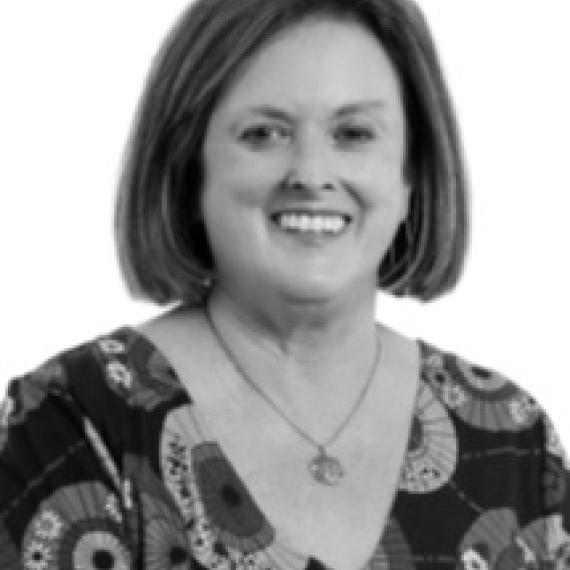 Donna Chung | Professor of Social Work and Social Policy, Curtin University
Donna Chung | Professor of Social Work and Social Policy, Curtin UniversityDonna Chung is the John Curtin Distinguished Professor of Social Work and Social Policy at Curtin University with over 25 years of experience in social work education and research. She has held senior roles at the University of Western Australia and the University of Warwick, focusing on male violence against women, homelessness and social policy. Donna also serves as Chair of the Centre for Women’s Safety and Wellbeing Board.
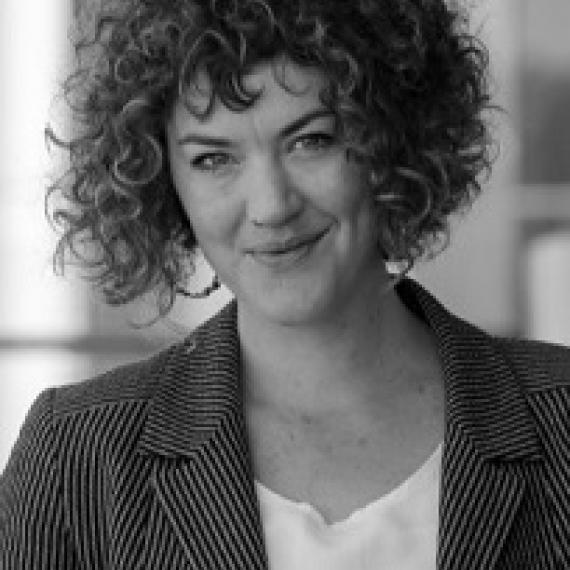 Anna Farrant | Manager Domestic and Family Violence, Centre for Women’s Safety and Wellbeing
Anna Farrant | Manager Domestic and Family Violence, Centre for Women’s Safety and WellbeingAnna Farrant is Manager of Domestic and Family Violence at the Centre for Women’s Safety and Wellbeing. With over a decade of experience as a lawyer working with the criminal justice system, child protection agencies and family court, Anna understands the challenges that women face from both a legal and whole-of-life context.
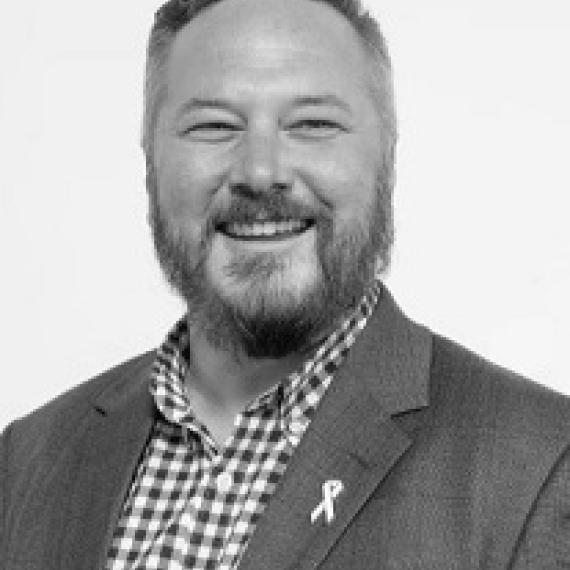 Ben Headlam | Director Family and Community Safety Services, Communicare
Ben Headlam | Director Family and Community Safety Services, CommunicareBen Headlam is Director of Family and Community Safety Services at Communicare, passionate about inspiring workplace teams to make positive impacts in the lives of communities. His experience includes senior roles in the health care and community services sectors, focusing on family mental health and Alcohol and Other Drugs (AOD).
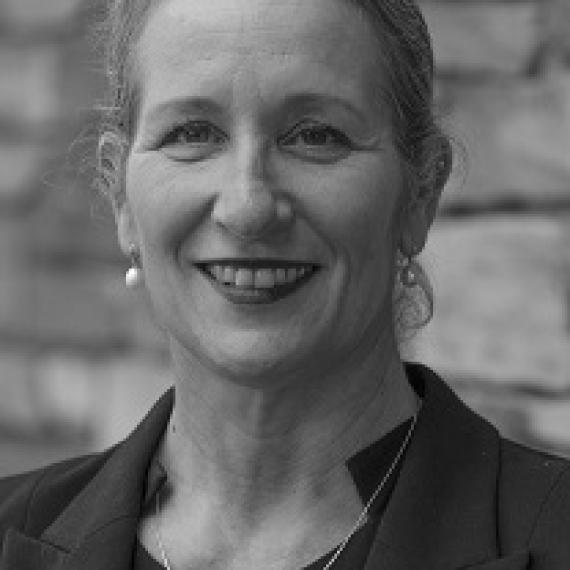 Debra Zanella | Chief Executive Officer, Ruah Community Services
Debra Zanella | Chief Executive Officer, Ruah Community ServicesDebra Zanella has over 20 years in health and community services, currently serving as CEO of Ruah Community Services. Her previous leadership roles span mental health, homelessness, and drug services. A graduate of the Australian Institute of Company Directors, Debra is active on several boards and organisations, including the WA Alliance to End Homelessness.
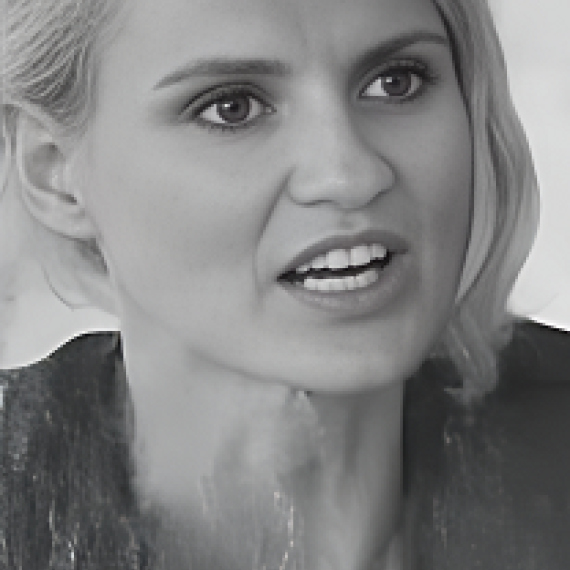 Georgia Prideaux-Cera | Advocate and Victim Support Leader
Georgia Prideaux-Cera | Advocate and Victim Support LeaderGeorgia Prideaux-Cera is an advocate with lived experience of intergenerational family violence. She was a pioneer in speaking out against family violence and sexual assault, reading a Victim Impact Statement in the Supreme Court. Georgia has served on multiple boards and founded HERO, a victim support group, and holds qualifications in Psychology and Criminology.
More Episodes
We know ferns have existed on Earth for millions of years, but just how closely do ancient ferns resemble modern ones?
By drawing on First Nations knowledge systems, cultural practices, and research methods, this presentation will showcase how climate adaptation and mitigation strategies that respect and integrate Indigenous knowledges and practices can help sustain well being.
Have you ever wondered what it is like working with fossils every day? Helen Ryan from the WA Museum shares her work in discovering, uncovering, preparing and preserving ancient life.
Hear from Dr Amanda Ash from Murdoch University’s School of Medical, Molecular and Forensic Sciences as she delves into the complexity of parasites and their importance.
Join us for a journey into the ancient world with Dr José Galán, a renowned Spanish Egyptologist and director of the Djehuty Project.
Curious about the creators behind our Megalodon head in the Wild Life gallery? Join the makers from CDM: Studio and peek behind the scenes as they share their process of designing, building and delivering museum exhibits.
Discover what we can observe about the Moon, learn about our current knowledge, and understand the importance of returning to its surface!
Discover the elusive Night Parrot at WA Museum Boola Bardip! Join us for an exclusive panel discussion with experts Penny Olsen, Allan Burbidge and Rob Davis.
Join Museum experts Jake Newman-Martin and Linette Umbrello as they take us on a mammalian adventure of the minute kind, from tiny marsupials to giant megafauna.
Discover the remarkable story of Wayne Bergmann, a Nyikina man and Kimberley leader who has dedicated his life to his community, in this moving memoir of living between two cultures.
Celebrate Perth Design Week with a robust panel discussion focusing on design and business.
Talk series hosted by Geoff Hutchison that explores who our young selves were and what became of them. This week hear from Sabrina Hahn.
How much will we look to the language of activism in finding the way towards reconciliation in Australia?
Navigating the delicate balance between the preservation of the Conservation Estate and our cherished and loyal feline companions is both a challenge and a responsibility.
